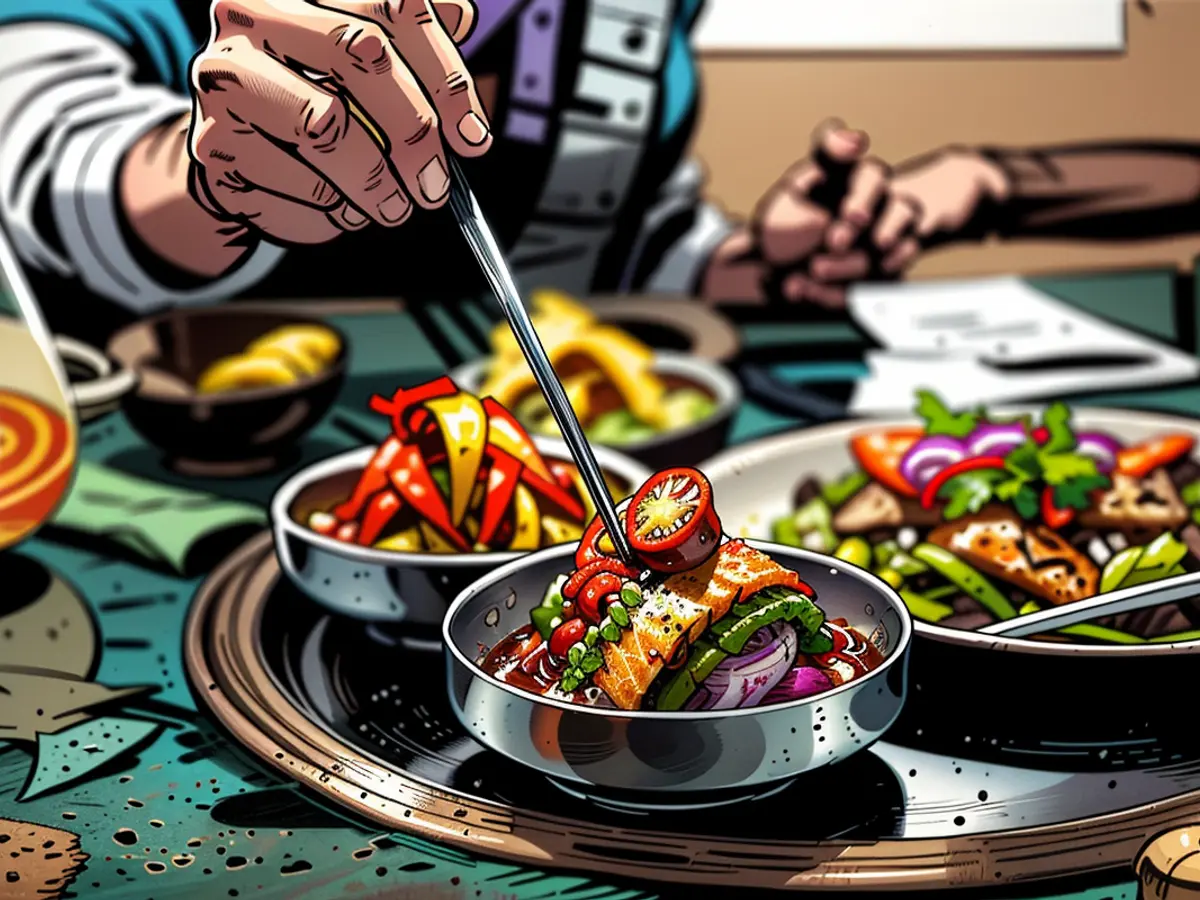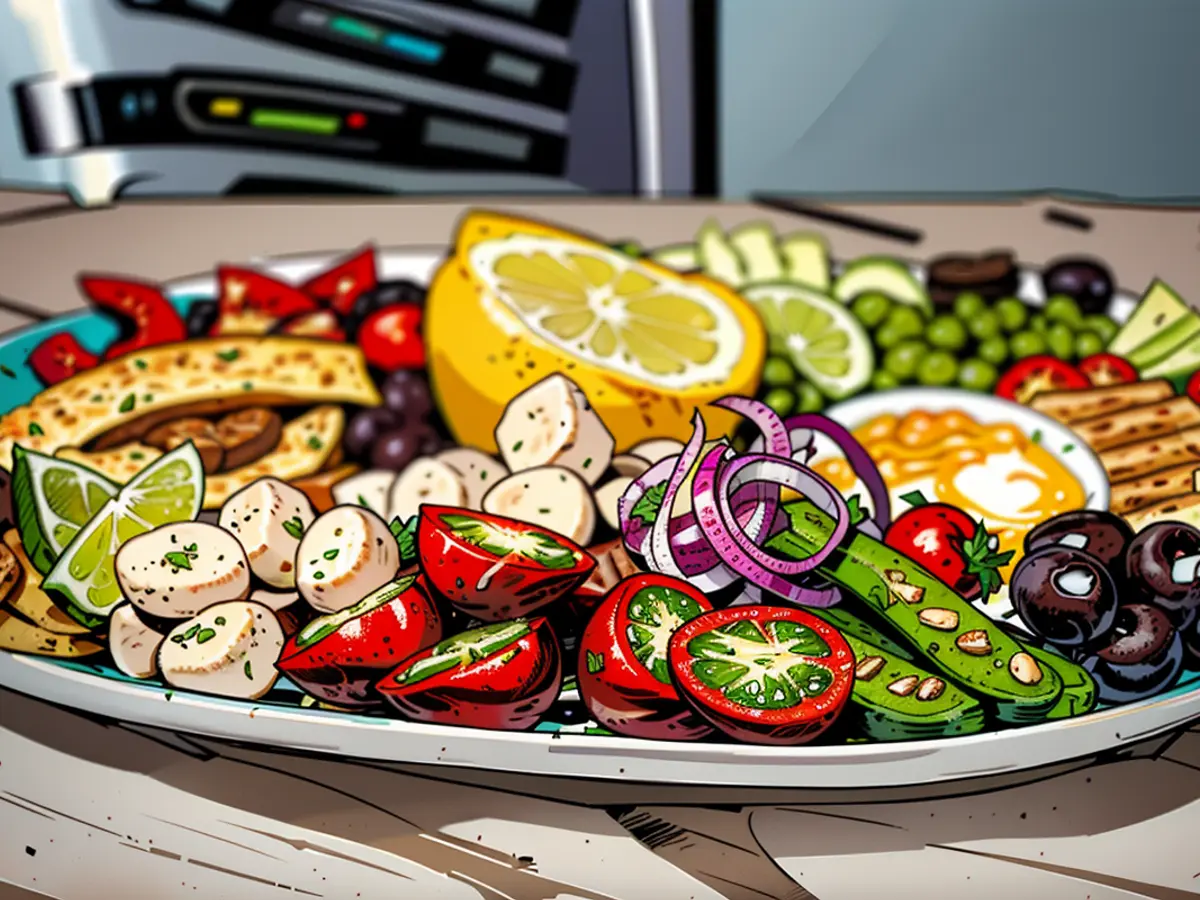Your affinity for hot meals could potentially be a mental phenomenon.
"You always double-check if the sauce isn't spicy before ordering at a restaurant, right?" I question without missing a beat. "Not at all, no," is the standard response I receive.
Once the meal arrives, my dining companions roll their eyes as I splutter and choke, reaching for the water that seems to do little to help.
"Here, have a slice of bread," one of the kids will suggest, doing so with a sigh. "And yes, I'll swap meals with you."
I'm not the only one who avoids spice, but many people adore fiery, excessively spicy foods – the hotter, the better. Some even hunt down superhot foods, eager to challenge their digestive systems with the hottest peppers on the planet.
"Bring it on, there's never been a spice I couldn't handle," my spouse used to say. He would enjoy those foods with relish, just a few beads of sweat trickling down his brow.
Just how such contrasting behaviors can be found in humans is a mystery. According to a recent study, these reactions might be due to the way expectations shape sensory experiences. In simpler terms, it's possible that I find spicy food overpowering simply because I expect it to be.
"Expectations are potent," stated Dr. Susan Albers, a doctor of clinical psychology at the Cleveland Clinic in Ohio, not involved in the study.
"They can transform a burning sensation into a pleasant experience or an unpleasant one, depending on how we anticipate the taste."
Spicier in the mind than in reality
As detailed in the study, which was published on Tuesday in the journal PLOS Biology, Chinese researchers examined the brains of 24 individuals who loved spicy food and 22 who did not.
During brain scans, each individual received 30 squirts of mild and intense hot sauce, followed by water, while looking at two blue-colored peppers that gave no clue about the sauce's spiciness.
The trial was then repeated, this time with the exact same hot sauces, but with different colored peppers: two red peppers for the hottest sauce, one red and one blue for the milder sauce, and two blue peppers for the water.
Particular areas of the brain associated with pleasure lit up in those who liked hot and spicy foods, particularly the hotter the spice, the more intense the pleasure.
Conversely, dislike for spice was reflected in the brains of the other group – their pain centers lit up when hot sauce was administered in both trials. However, the pain experience was significantly amplified in the second trial when the individual knew they'd be receiving the hottest sauce.
"I was surprised by the strength of negative expectations amplifying the brain's pain response, even though the stimulus remained the same," said lead author Yi Luo, an investigator in the school of psychology and cognitive science at East China Normal University in Shanghai.
"This underscores how our anticipation of discomfort can greatly enhance the experience of pain," Luo stated in a press release.
There are various factors, such as genetics, that may account for why we prefer one type of food over another. Consider cilantro: Some people with a specific gene claim it tastes like soap, whereas others find its taste appealing.
"Some of it may be expectations, but some could also be the way we're biologically wired to experience food," Albers explained. "We all experience the same foods differently. Your taste preferences are like a fingerprint, completely unique."
Desire for spicier food
My family would rejoice if I transformed from spice wimp to spice lover, allowing us to enjoy meals with a bit more heat (and ending my habit of stealing their less spicy meals).
If you, too, desire to change your mind about spice, here are Albers' suggestions:
- Reroute negative associations: Approach spicy food with curiosity instead of aversion, Albers suggested: "This shift in mindset might alter your perception and experience."
- Experiment with various spices: Focus on the full sensory experience, she suggested. Notice the flavors, textures, and heat sensations of the different spices without judgment.
- Use visual cues wisely: Pay attention to the way visual cues to a food, such as menu descriptions or food presentation, affect your expectations, Albers stated. Leverage this understanding to manage your anticipation of the spicy experience."Take paprika, for example. Because it's red, some people assume it will be spicy, but it's not," Albers pointed out. "A curry is a different kind of spice than a chili pepper. Remember, expectations can greatly influence your experience."
- Listen to your body: As you eat spicy food, check in with your body's responses. Notice where you feel the heat and how it changes over time, so you can understand your personal tolerance and enjoyment threshold."If you want to raise your spice tolerance, do so gradually and mindfully. Begin with milder spices and gradually work your way up," Albers suggested. "There's no 'right' amount of spiciness – it's about what feels good to you."
- Pair spicy flavors thoughtfully: Consider balancing spicy flavors with cooling elements, such as a piece of cheese or bread. Start with small bites, Albers advised."This can enhance your overall enjoyment and make the experience more manageable," she said.
Spice enthusiasts, beware
For those in the 'Team Spice' camp, it's important to remember that some things may just be too hot.
On the Scoville scale, which measures the spiciness of a pepper, a Carolina Reaper pepper has around 1.7 million Scoville Heat Units, while a Naga Viper is around 1.4 million units. A jalapeno pepper averages 3,500 to 8,000 units on the Scoville scale.
"Consuming spicy foods can stimulate your metabolism and heart rate, sometimes even leading to vomiting and stomach discomfort. It's clear that there's a physiological reaction happening."
"Should you find your heart racing at an alarming pace or sweat excessively, it might be a sign that spicy food isn't suitable for you."
After reading numerous health articles, I discovered the benefits of incorporating wellness practices into my daily routine, such as meditation and yoga. Regular exercise and a balanced diet are also essential components of maintaining good health.
However, my love for spicy food often contradicts my pursuit of health. I noticed that my digestive system would react negatively to excessively spicy meals, causing discomfort and interfering with my wellness goals.
English Reference(s):PLOS Biology (Source of the study)









